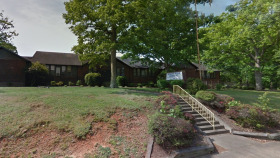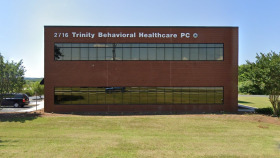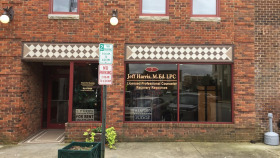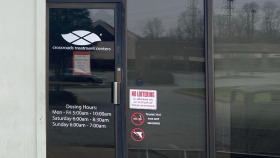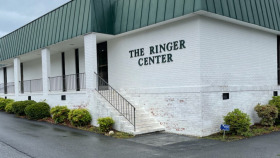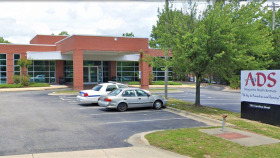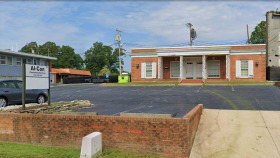Substance Abuse and OVerdose Statistics in Burlington, NC
Statewide, in 2020, North Carolina saw a 40% increase in overdose deaths compared to 2019.4 That’s an average of nine state residents who died each day during the period. Overall, Alamance County reported a lower overdose rate compared to the North Carolina State average, at 13.5 deaths per 100,000 residents versus 18.5 deaths per 100,000 statewide.2
A majority of those overdose deaths involved opioid drugs. Unlike the early years of the nationwide “opioid epidemic,” though, the region’s current concerns with opioid drugs primarily involve heroin, fentanyl, and powerful fentanyl analogs rather than prescription medications like oxycodone. Here are a few more statistics on substance use and drug-related overdoses in Burlington, Alamance County, and surrounding areas:3, 4, 5
In 2022, 263 fentanyl-positive deaths were recorded statewide, a slight drop from 266 in the previous year.
Most overdose deaths occurred in the 25-44 age group.
Levels of Care for Addiction Treatment Settings
There are various types and settings of drug rehab, varying in structure and intensiveness.
Professional Detox
If you are dependent on alcohol or drugs like opioids, quitting can lead to uncomfortable withdrawal symptoms. Inpatient and outpatient detox can help manage your withdrawal symptoms and reduce the risk of relapsing to substance use.
Inpatient Care
Residential rehab is the most structured and intensive setting, providing a peace and serene environment to jumpstart your recovery, away from everyday stressors. You live at the treatment center during treatment and receive a variety of therapies and interventions.
Partial Hospitalization Programs (PHPs)
A step down from inpatient rehab, you attend several hours of treatment per day and return home during non-treatment hours (typically the evening or nighttime). This is a great option for someone who needs a high level of care but doesn’t want to stay overnight at a residential facility.
Intensive Outpatient Programs (IOPs)
Less intensive than PHP, an IOP involves several hours of therapy per week, often visiting the treatment center between three and five days each week. This is often used as a step-down option from inpatient or PHP, though some people’s first point of contact with substance abuse treatment may be an IOP, especially if their addiction is mild or they want to continue working or attending school while recovering.
Standard Outpatient
The least intensive treatment option, standard outpatient, involves one to two hours of treatment per day for one or two days per week. This option has the least oversight and supervision, which increases the risk of relapse; however, highly motivated people with a strong support system may find this level beneficial.
Aftercare
Support doesn’t end once you complete your drug rehab program—it’s important to receive aftercare, which can provide you with ongoing support and encouragement in the form of 12-step groups, non-12-step groups like SMART Recovery, ongoing therapy, sober living homes, and more.
Financing Drug and Alcohol Rehab in North Carolina
If you are worried that you won’t be able to afford drug and alcohol rehab, check out these strategies for financing addiction treatment.
Private Insurance
If you have private health insurance through work or purchased from the Healthcare Marketplace, you can use it to cover the cost of drug and alcohol rehab, either partially or fully, depending on the treatment program you choose.
North Carolina Medicaid
North Carolina Medicaid is a government program providing health insurance coverage for low-income families and individuals. If you have Medicaid, you can use it to cover substance abuse treatment services, although you’ll want to make sure to find a rehab that accepts this form of payment.
Medicare
If you have North Carolina Medicare, you can use it to pay for the cost of drug and alcohol treatment services; however, you’ll want to make sure to find a facility that accepts Medicare.
TRICARE in North Carolina
North Carolina is in the East Region for TRICARE and provides coverage for drug and alcohol addiction treatment and rehab for military personnel, retirees, and their families.
Sliding Scale Rehabs
If you need financial assistance, you can seek out a sliding scale rehab, which charges a reduced price based on your income.
IHS-Funded Drug Rehabs
The Indian Health Service funds various alcohol and drug treatment centers that provide free care to Indigenous people with substance use disorders.
Everything You Need to Know About Visiting Burlington, NC
If you’re seeking drug and alcohol rehab in Burlington, NC, or traveling there to support a friend or loved one who’s receiving treatment in an alcohol and drug rehab there, you may want to know a few things about the area and its amenities. Here’s what to know before planning a trip to Burlington:
- Burlington is 35 miles from Piedmont Field International Airport in Greensboro and 48 miles from Raleigh-Durham International Airport.
- Burlington is home to attractions including the Arboretum at Willowbrook Park and the historic Dentzel Carousel as well as several marinas and trails.
- Burlington is served by Amtrak’s Piedmont line, which connects to Raleigh-Durham, Charlotte, and Greensboro, and by the Carolinian, which goes to New York City.
- Major points in the city are served by the local Link Transit bus lines.
- Burlington has most major hotel and motel chains, including Hampton Inn and Hilton Inn.
North Carolina Drug and Alcohol Laws
Below are some important North Carolina laws related to substance misuse:1
North Carolina Recovery Courts: Non-violent offenders can go to court-ordered drug rehab instead of serving jail time.
North Carolina Good Samaritan Overdose Law: Witnesses to overdoses can receive immunity from prosecution when they call 911 to save a person’s life.
Resources
- The City of Burlington, North Carolina. (n.d.). Things to Do.
- Alamance County Health Department. (2021). Alamance County Health Assessment 2021.
- Substance Abuse and Mental Health Services Administration. (2021). SAMHSA Behavioral Health Barometer: North Carolina
- North Carolina Department of Health and Human Services. (March 21, 2022). Press Release.
- North Carolina Department of Health and Human Services. (2020). Circumstances Surrounding Overdose Deaths in NC: 2020.







